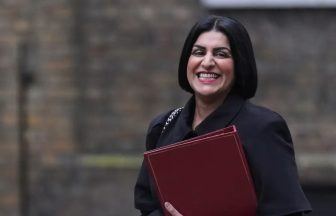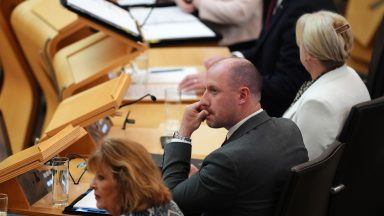Once the number of rebels was there in black and white, a UK Government U-turn on cuts to disability benefits was inevitable.
This isn’t the first time Keir Starmer has had to yield to political pressure from within his own party to change course – there have been some major about-faces already during the first year of his premiership.
But this might end up being the one that people remember, that historians point back to as the moment his authority crumbled and his government went wrong.
The first reason is that despite watering down his proposed welfare reforms, Starmer still faces what could be the biggest rebellion by Labour MPs since he took over as leader, when the legislation comes to a vote on Tuesday evening.
While the changes are believed to have won over the majority of the 120-odd MPs who had signed a wrecking amendment, dozens of Labour parliamentarians remain who simply won’t back the reforms on principle.
The hardcore opponents say that cutting support for the disabled and vulnerable is un-Labour and not why they went into politics. A significant chunk of the Labour vote will agree with them.
The official government analysis released on Monday, showing that the reforms will still push 150,000 people into relative poverty across the UK, rather than 250,000, will add to their argument.
So will media coverage of people with debilitating long-term health conditions losing out on benefits they would previously have received – even if those currently getting support are no longer at risk of losing it.
Campaigners will keep up the pressure in public, and likely in the courts, over what they say will be a two-tier benefits system.
Meanwhile, the Tories will argue that the cuts to the ballooning welfare bill fall short of what’s needed to get spending under control.
In short, if no one is happy with the outcome, there isn’t much upside for the Prime Minister.
The U-turn also leaves Rachel Reeves scrambling to find £3bn more, now that the cuts won’t be as deep as expected.
The Chancellor was already facing questions about how she was going to stick within her fiscal rules, which prevent her from boosting borrowing, and also keep her promise not to raise more taxes.
At the Budget later this year, she is widely expected to have to do one or the other – since more cuts are now seen to be politically unacceptable to Labour MPs.
That all leaves Reeves’ own future in doubt – and she’s the only Cabinet minister so indispensable to the Starmer project that he’s taken the unusual step of saying he wants to keep her in her job until the end of the Parliament.
The episode has left Labour MPs in despair at the standard of political leadership from 10 Downing Street.
The Prime Minister’s top advisers and the party whips have blamed each other, and negative briefings have emerged about Starmer’s chief of staff, Morgan McSweeney, and his relationship with his boss.
Unhappy MPs have claimed the Prime Minister and his government are aloof and don’t listen to outside voices that could help them avoid mistakes.
When he took power, Starmer made a virtue of his qualities as a good manager rather than a political performer. His critics now say the prime minister’s lack of political instinct has let him down.
For Scottish Labour MPs—some of whom have broken with the government for the first time over this issue—the political damage is even greater. With less than a year until the Holyrood elections, this gives the SNP more ammunition.
It all has the whiff of a government heading into its final chapters, rather than just getting started only a year after a landslide general election victory.
Follow STV News on WhatsApp
Scan the QR code on your mobile device for all the latest news from around the country




























